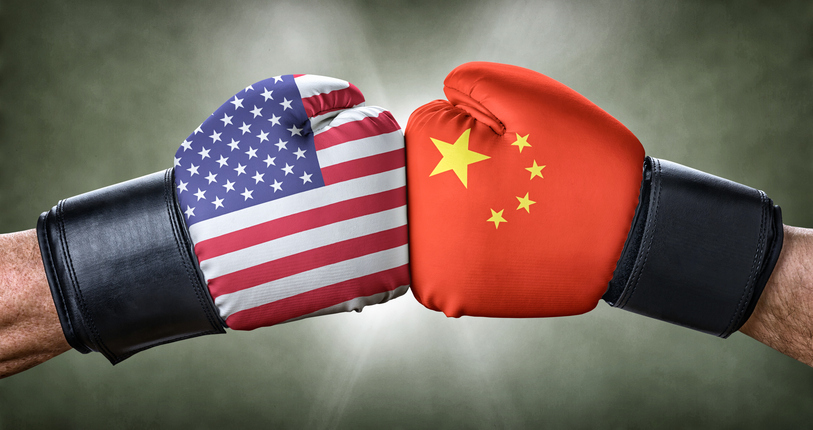
Amid rising tensions resulting from a trade war, Taiwan Straits' independence and North Korea's nuclear program, how should America engage China, an empire embarking on a great revival of centralization?
From the war on trade tariffs to conflicting engagement strategies with North Korea and the sensitivities with the Taiwan Straits, analysts in the region are kept on the edge of their seats trying to figure out the next move by either of these superpowers.
Sparks flew between America and China in a war on trade tariffs. Despite possible bravado, it is the first counter attack from China in a long time. However, this strike is not entirely groundless.
It is a necessary show of power for a rising empire. After five years in office, Xi Jinping is now president for life (if he wishes) and China's most powerful leader in decades. A vote to amend the country's constitution and abolish a two-term limit for President Xi was approved with just two votes against, three abstentions and one spoiled ballot paper.
The move was not unexpected. But it gives China-watchers lots to think about.
Abolishing the limits on presidential terms does not only embody President Xi's personal willingness to take complete control, but it also embodies the Communist Party's wishes.
The Party is trying to create an amalgam of Deng Xiaoping, who led China through massive economics reforms, together with the charisma of Mao Zedong, in order to strengthen its legitimacy in the new era. China's step from autocracy toward dictatorship is an attempt by the Party to consolidate its legitimacy.
The revival of a great centralized empire
America will have to confront a China who has already deviated from the fundamental road of Marxism but is on the road of reviving a great centralized empire.
China will definitely take on a more assertive stance in international affairs. She will also strike a careful balance between this assertiveness and her soft power. Looking back into history, none of the greatest Chinese empires Han, Tang, Song or Ming established itself on brute military might. This will also not happen in China today.
Through the one-belt-one-road initiative, China devotes time to engaging with her neighbors. This strategy is likely to prove effective in Asia, a region which strives for economic growth and fostering a stronger cultural identity. President Donald Trump's protectionist policies also allows China to assume the lead in this region.
China will establish a self-sufficient network of trade partners in the absence of the US. Labor-intensive industries will be shifting to China's neighbors. And, China will continue to promote industrial upgrading by focusing on high-end manufacturing such as information technology, biotech and clean energy.
Within the Chinese Communist Party (CCP), political reforms will be more conservative. It is unlikely to introduce drastic democratic reforms. Reinforcing President Xi's individual power means more to his autocracy within the CCP than externally. Enhancing President Xi's personal authority is necessary in consolidating power. Once policies are enacted, they will be executed more efficiently than before.
How should America respond to China?
America's pressure on China through its trade tariffs is a right move at this point because it would be too late when China has fully completed its high-end manufacturing system.
However, if the trade war fails to achieve its desired objectives, China-US relations are likely to keep deteriorating. Other potential flashpoints such as North Korea's nuclear program and the Taiwan Straits' Independence may also put a strain on these ties.
What harms the legitimacy for a centrally ruled empire the most is losing its territory. It becomes a precarious situation if America tries to use Taiwan to pressure China. In such sensitive times, any show of support for Taiwan from America will be amplified and over-interpreted. There has not been any evidence that President Trump will play the Taiwan card, but he must be extremely careful to avoid this.
Will War Erupt Between America and China?
Conflicts between China and the US are inevitable in the long run. If war were to erupt between these superpowers, President Trump does not have the support of an establishment like the CCP in China. He has to face extreme resistance even from the republicans in many policy decisions. Ironically, if President Trump ignores the resistance and does what he pleases - America may win the trade war, but democracy would have lost.
Dr. Lu Xi is an Assistant Professor and Christel Goh is Assistant Manager at the Lee Kuan Yew School of Public Policy, National University of Singapore.